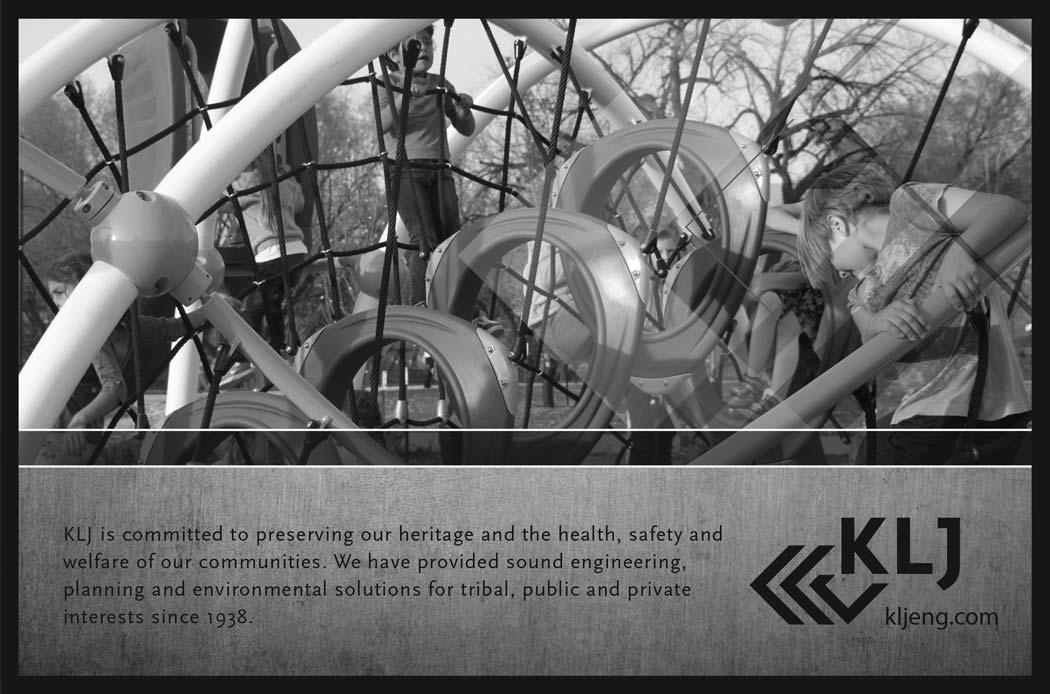
8 minute read
Can’t We All Just Get Along
Establishing Good Council Relations
By Erika D. Peterman
Advertisement
The old adage “You can choose your friends but not your family members” is apt when it comes to relations among city council or commission members. A group of disparate individuals, each with his or her own opinion and unique worldview, charged with working together for the betterment of their communities.
As anyone who has observed council meetings knows, it’s not always smooth sailing. The issues are often complex and can lead commissioners into difficult, contentious territory.
Bob Lee, director of the Center for Florida Local Government Excellence and a former city manager for the cities of Naples and Gulfport, said it is important to remember that council members are first and foremost human beings who are, as Dale Carnegie said, not creatures of logic but of emotion. “That can’t be overemphasized,” said Lee, who is also an assistant professor at Florida Gulf Coast University. “Every word they hear is filtered through a lifetime of experience. One word to one person may mean (something else) to another person.”
Yet, collegiality and cohesiveness are important ingredients in getting things done. How can council members overcome their differences to do their jobs effectively?
Regardless of whether it is a mayor-council or councilmanager form of municipal government, good listening and communication skills, self-awareness, a willingness to set aside ego for the greater good and being educated on the issues are all part of the mix, experts say.
“This isn’t personal. This is all about the city,” said Lynn Tipton, director of the Florida League of Cities’ FLC University. “You’re one of five or you’re one of seven. What can you do to build a relationship where you learn to at least trust each other with regard to the city’s business?
You don’t have to be best friends. What you’re looking for is enough collegiality and enough respect for the office.”
One of the challenges for elected city officials in Florida is that all of their discussions about city business must be carried out in public because of the state’s open government laws. If two council members have had a previous disagreement or blowup, they can’t just go out for coffee and work out their differences on the issues. Scott Paine, an associate professor of communication and government at the University of Tampa who served on the Tampa City Council from 1991 to 1999, said those conflicts sometimes fester and play out on a public stage.
“It’s an accumulation of all the sorts of social slights – the harsh words, the quick-tempered response – that remain unresolved because they can’t be resolved in private,” Paine said. “You’ve got to moderate yourself a lot more... than you do in other work settings.”
A recurring theme is the importance of listening. As Lee put it, the key is to listen for understanding and not simply to respond.
“One of the most difficult things for people to do is to be good listeners,” said Marilyn Crotty, who is director of the Florida Institute for Government at the University of Central Florida. “Elected officials tend to like to talk. But to be able to listen without preconceived notions is really hard, particularly if you aren’t a good listener. So it takes some training and a lot of concentration to be able to set aside your own ideas and really be able to hear what the other person is saying. It may be something that’s good.”
Said Paine, “Invite the colleague to elaborate on something so that you have time to hear them a little more. You’re telling them ‘Your ideas are important to me. I need to understand what you’re trying to do.’ ”
Establishing a sense of trust is another critical aspect said Crotty, who facilitates training to help elected officials work together more effectively. If there is a sense of trust and cooperation, that makes it easier to listen to others and go into discussions with the idea that there is no hidden agenda. And speaking of trust, gossiping about one’s fellow council members is a no-no.
“There’s no local government in Florida big enough where that gossip doesn’t get back to the person, and that’s hard for human beings to resist,” Lee said.
In terms of maintaining civility, Lee said the person chairing the meetings is critical in keeping the proceedings from running off the rails when conflict arises.
Some tips from the experts
Get educated.
For newly elected officials, Lynn Tipton recommends taking some time to get to know the job before attempting to initiate drastic changes: “Once they get elected, they need to take some time to work into the role and see what it’s like from the other side of the table,” she said. “They just might have a very different perspective than they did before.”
Keep communication consistent.
Bob Lee said the city manager should make sure each elected official receives the same information as all the others and that they are treated consistently in all communications. He also said it is wise for elected officials to be prepared before they go into a meeting and think about how they will respond to an issue they are particularly sensitive to.
Watch the tone.
If addressed in a hostile tone, resist the urge to respond in kind. “There’s an old saying that if you roll in the mud with pigs, the pig’s going to enjoy it and you’re going to get all muddy,” Lee said. “Stay professional and stay focused.”
Focus on the issue, not the person.
“There is no requirement on a city council that they have to like the other people, but you do need to respect them because they have been elected by the constituents to serve,” Marilyn Crotty said. “The ability to remove yourself as an individual from the discussion and just focus on the issues is really key.”
Remember it’s about the citizens.
Scott Paine said that he has known city council members who were passionate and opinionated, but who also were good at remembering that they were in their positions because the people put them there. “It wasn’t all about them. I really do think that makes all the difference in the world.”
“Civility is something that many councils wrestle with all the time,” he said. “How the chair handles that can make every bit of difference in terms of what the outcome is and how people get along. If you have a mayor or a chair who reaches out to the others . . . and doesn’t allow the meeting to get out of hand, that can be very, very important.”
Mike Abels, an instructor in the department of public administration at the University of Central Florida and a former city manager for the cities of Longwood, Palm Bay and DeLand, said strategic planning can serve to ameliorate council relations by orienting council members away from short-term, narrow issues to focus on the future and the broader, bigger picture. “When that occurs, then the decision-making gets focused around a longer-term plan,” he said.
Another strategy is to hold workshops that can allow commissioners to get out of the immediate legislative process and discuss issues that are going to come up in the future. That way, they can “hammer out solutions without the glare of ‘We’ve got a problem and we’ve got to have legislation right now.’” Some knowledge of group dynamics is helpful. Crotty noted that council members tend to fall into certain functional roles. For example, those in “maintenance” roles want to make sure the group accomplishes what it’s supposed to, but they’re also concerned about the people in the group – making sure everyone feels included and has opportunities to participate. “Task” people also want the body to achieve its goals but are focused on the agenda and moving things forward. Both can become frustrated with the other. Part of what Crotty does is to help members get a sense of where they fit in and to appreciate what those in the other camp bring to the table.
And then there are those in “egocentric/blocker” roles who don’t care about the task at hand but have their own agendas. Crotty said they tend to be people who are aggressive and try to bully others.
“They are trying to scare you so you’ll be quiet and they can take over,” she said. “You have to call these people out in public . . . and don’t ever rise to their level of name-calling.
It isn’t unusual for council members to have light-bulb moments during the training. Crotty worked with one dysfunctional council whose members complained about

citizens being rude and obnoxious during meetings. Then, they realized that they were displaying the same behavior toward each other.
“All of a sudden, one of them said, ‘We are the problem,’” Crotty said.
From personal experience, Paine knows how far the animosity can go when council members clash. In 1991, by a 4-3 vote, the Tampa City Council voted in favor of an ordinance prohibiting discrimination on the basis of sexual orientation. Paine said the issue was highly polarizing and the vitriol reached “brutal” proportions.
“There was a lot of hateful language back and forth,” he recalled. “It was just awful and left a very bitter taste.” However, it was also a “gut-check” for every member of the council, and Paine said his senior colleagues were instrumental in making the decision to move past the rancor.
“(They) had the courage and integrity to step back and say, ‘We’re just not going to hike this way anymore. We’re going to move forward now.’ My senior colleagues set the tone.”
When such situations arise, Lee said council members should remember another element of good inter-group relations: Forgiveness.
“As elected officials, they’re going to make mistakes. They are going to say things they wish they hadn’t said. They’re going to get angry,” Lee said. “We all make mistakes. They need to learn to truly forgive themselves and forgive other people.”
Erika Peterman is a freelance writer.
Reprinted with permission of Quality Cities, published by the Florida League of Cities.











